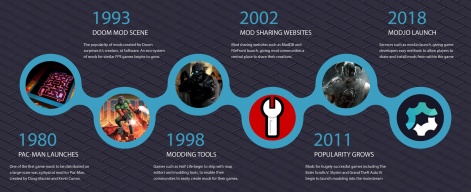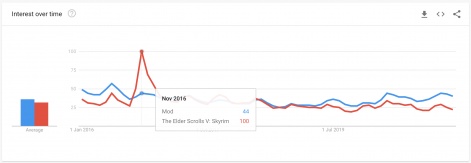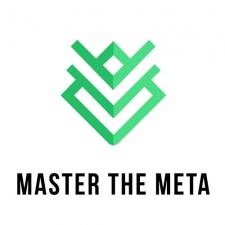Master the Meta is a free newsletter focused on analysing the business strategy of the gaming industry. MTM and PG.biz have partnered on a weekly column to not only bring you industry-moving news, but also short analyses on each. To check out this week’s entire meta, visit www.masterthemeta.com.
Have you ever wondered why PUBG stands for “PlayerUnknown’s Battlegrounds”? Well, an Irish modder by the name of Brendan ‘PlayerUnknown’ Greene created an extreme survival mod of Bohemia Interactive’s open-world tactical shooter ARMA 3 with one simple rule - be the last man standing. Not only did that result in the birth of the battle royale genre, but also the creation of the breakout hit we all know today as PlayerUnknown’s Battlegrounds.
Game mods have been around since the dawn of digital gaming. In some rare occurrences, modders have created some of the world's most popular games such as Dota and Counter-Strike, while also giving birth to new genres like auto-chess and the previously mentioned battle royale. Further, they've helped countless games like Minecraft, Skyrim and The Sims expand and live on with new and exciting content for players.
Unfortunately, due to high technical skill requirements, the relative isolation to PC games, the lack of curated distribution mechanisms and a web of copyright infringement possibilities, modding has remained a relatively niche pursuit over the past couple of decades. It was mostly spearheaded by superfans looking to satisfy primarily hedonic motivations through websites, such as Mod DB and Nexus Mods.
It was arguably Steam’s UGC hosting service - “Workshop” - that made modding cross the chasm. Between 2012 and 2014, Steam Workshop paid out approximately $57 million to 1,500 creators. While that equates to a meagre average of approximately $12.7k per year per creator, this was only generated from UGC (including mods) created for Valve games. Steam then decided to support paid, curated Steam Workshops for non-Valve games resulting in 3.2 million items being sold in 2018, and it jumping by plus 35 per cent to 4.3 million in 2019.

Today, various technological advancements and an industry-wide embracing of UGC can allow for modding’s hedonic motivations to transcend into more economically beneficial ones for the modders, mod curation platforms and the developers of the modded-on games themselves. Quite interestingly, “mod” as a video game search term has been seeing an uptick on Google Trends over the last couple of years, even though one of the most modded games in history, Skyrim, has been steadily dropping in search interest levels.

If I (Manyu, here) had to guess why that is, my first hypothesis would be - if today’s gaming generation flocks to mod-friendly games like Minecraft and GTA V to 'hangout', a need exists to enhance the base game experience faster than the game developer can churn out new content in a cost-effective fashion. On top of that, these content enhancements need to be unique and engaging experiences, thereby increasing the upside attached to crowdsourcing creative ideas. Both points help create fertile grounds for an ecosystem to be built around modding and thereby letting it increasingly enter the mainstream.
That said, I feel modding continues to remain a relatively nascent market opportunity for modders and entrepreneurs alike. There are some significant hurdles (and conversely opportunities) to cross before a robust ecosystem can exist:
- Legality: The developers of the most popular games need to rethink mod ownership rights. For example, in early 2020, Blizzard updated its 'Custom Game Acceptable Use Policy' clarifying that all mods are its property. If large publishers are looking to grow and foster a community of modders, such moves may not be the best way forward.
- Accessibility: Games that allow mods need to provide first-party tools or enable third-party tools to easily, quickly and reliably build the mods on. Not only will that help capture today’s experienced modders, but also create new modders. To put this hurdle in context, even though Steam Workshop helped increase the TAM for mods, it was notable that the number of mod creators increased very slowly from approximately 1.5k at the end of 2014 to an estimated 1.7k in 2018.
- Curation, discovery and distribution: While curating mods for safety and compatibility is necessary to grow consumption, improving mod discovery and enabling their distribution across key platforms where 'gamers' access gaming content are key areas to tackle. One step forward here, similar to Steam Workshop’s premise, is how the Xbox (Beta) app on PC started supporting mods on games delivered via the Microsoft Store.
- Cross-platform capabilities: If mods continue to be a mostly PC phenomena, modding’s future isn’t going to be all that bright. Mods need to be increasingly embraced across platforms. Past examples of Bethesda enabling Fallout 4 mods on Xbox One and PlayStation do exist, but each mod was put through strict pre-approval processes and ended up curtailing any possibility of console mods thriving. Back in 2019 and as a console industry first, Paradox Interactive and Microsoft allowed Xbox One players to get direct access to PC mods without any pre-approval from the console maker or publisher. Paradox now has a vibrant mod library, and more recently games like Space Engineers and Skater XL also allow cross-platform mods.
- Monetisation models: Today, this is predominantly revenue share-based. But opportunities do exist to expand revenue-generating opportunities for modders through advertising, subscription and partnership-based monetisation models.
There are two companies currently on my radar that are realising different facets of an eventual modding ecosystem, and thereby creating new opportunities for modders to build a living off of their passion. The first is mod.io - an Australian cross-platform modding solution, led by the founders of Mod DB that facilitates the upload, search, browsing, downloading and trading of mods in-game. It raised $1 million pre-seed in March 2020 through Play Ventures and followed that up with a $4 million seed round in December 2020 led by Sequoia’s Surge and Makers Fund.
The second is Overwolf - an Israeli platform for mod creators to host, distribute and monetise cross-platform mods and in-game apps across a variety of top games. With its acquisition of Twitch’s mod repository CurseForge, Overwolf boasts 30k creators, 90k mods and 18 million MAUs across a multitude of games, including Fortnite, World of Warcraft and Minecraft. All that has resulted in Overwolf’s revenue growing by over 300 per cent throughout 2020, and it recently raised a $52.5 million Series C co-led by Insight Partners and Griffin Gaming Partners. Check out Overwolf’s story here.
Overall and looking ahead, more game developers will come to realise that enabling their fanbases with the tools to create mods not only extends the game’s shelf life at a fraction of the cost but also increases fanbase engagement in an ever-evolving fashion. The associated business impact is obvious. And in the imminent future of UGC thriving across gaming, modding does seem to have its place. While the mainstream adoption barriers it needs to break through are significant ones, it will definitely be interesting to follow modding’s continued evolution.
Master the Meta is a newsletter focused on analysing the business strategy of the gaming industry. It is run by Aaron Bush and Abhimanyu Kumar. To receive future editions in your inbox sign up here:





















